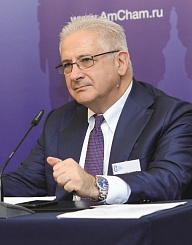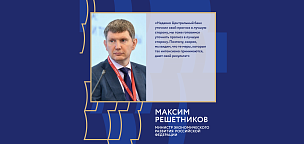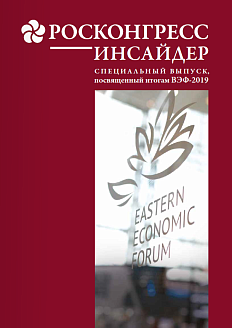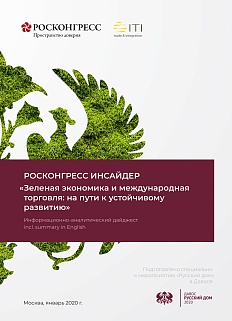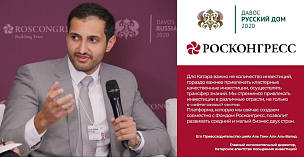At the St. Petersburg International Economic Forum last year, President Vladimir Putin appealed to American business leaders to help restore normal political dialogue between our countries. Is there any hope for a thaw in relations?
It would seem that the political situation has not improved, but we are seeing positive developments. The new US administration has changed its tone with regard to American business in Russia. For the first time in my four and a half years at the American Chamber of Commerce, we have heard from US officials that we need to be more proactive in developing business with Russia, since this is, in fact, the last constructive relationship that remains between our two countries. And on this basis, the relationship as a whole must be improved. This is the message from the new administration.
Last year, for the first time in the history of the American Chamber of Commerce in Russia, President Vladimir Putin took part in the Russia—US Business Dialogue panel discussion, which is held every year at SPIEF. He said, literally: «Only strong trade and investment ties can provide a reliable safety net against fluctuations in the political situation.» And this is very much in tune with what we hear, for example, from the US Ambassador to Russia, Jon Huntsman, who was appointed to this position in the autumn of 2017.
In which sectors is economic cooperation most feasible?
Light industry and consumer goods. These areas are not affected by sanctions or other external factors. But the dynamic development of business is constrained by low purchasing power. After the significant collapse in oil prices, Russia’s state budget did in fact recover. State investment in major infrastructure projects is also getting back on track. But the slowest element of the recovery is getting money back into Russians’ pockets, and we are constantly hearing this from our member companies working in the FMCG sector.
Another area is healthcare and pharmaceuticals. But here we rather see pressure from the Russian side, which wants to hedge against the hypothetical closure of markets and is promoting the idea of compulsory drug licensing, in other words, the synthesis and production of drugs without the consent of the rights holder. This is of great concern to the leading pharmaceutical companies, since they invest tremendous resources in research and development and make their living from intellectual property.
How much has American business lost as a result of counter-sanctions and the import substitution policy?
By and large, all this has had very little impact on American business. Exports of meat and poultry from the United States to Russia were in fact stopped before the introduction of sanctions and counter-sanctions. As for our industrial companies, they are ‘the holders of many passports’ and work all over the world. If it is easier and more convenient for them to work with Russia from China or from the Netherlands, then that’s what they do.
And the import substitution policy entails, among other things, the localization of foreign companies’ production in Russia. Those who have been in the Russian market for a long time understand very well that successful work here largely depends on the degree of localization. In addition, following the significant devaluation of the rouble, it has truly become cheaper to work here.
It is unlikely that any of the leading IT equipment suppliers can boast that they have localized production in Russia.
Business for our IT companies in Russia is no worse than it was previously. However, companies are often forced to replace orders that previously came from the public sector with those from the corporate sector. It’s possible that their business in Russia could grow even faster without migration to equipment manufacturers from Asia. Especially considering the attention given to the digitalization of the Russian economy, in which a fair amount of money has been invested. It’s hard to say that IT companies have suffered, but they could be in better shape if it weren’t for politics.
Last year at SPIEF, the American Chamber of Commerce presented the results of a survey of US companies on doing business in Russia. Do you plan to release new data at SPIEF 2018?
Yes, we will present new research. We have carried out this survey for the third year running. Why did we launch the survey? Official statistics show that the volume of trade between our countries is small and that the level of investment by US companies in the Russian economy is very low. But, in fact, the presence of American business here is far more substantial, because most investments are made from Europe and Asia, plus companies reinvest what they earn here.
As last year’s study showed, total investment in Russia by just 90 US companies came to about 82.44 billion dollars. Official statistics report between 9 billion dollars and 11 billion dollars in investment, which is substantially lower. In addition, the study tells us that about 68 % of the imports of the companies surveyed came from outside the US, i.e. the volume of trade between the US and Russia is underestimated approximately threefold. The most obvious example is Apple products, which are considered to be Chinese exports to Russia.
It turns out that the official statistics only partially reflect the trade and economic ties between the two countries. But this is what both sides rely on when political decisions are being made.
What kind of issues do companies come to the American Chamber of Commerce about?
Absolutely all kinds. Most often, it’s about new Russian laws which, initially, are insufficiently supported by regulatory documents, and for that reason, raise a number of questions. Some people, it may be said, lost some sleep after studying the Yarovaya law or the law on the protection of personal data, when they tried to assess their expenses. We try to create a space for discussion: we collect questions from companies, summarize them, and pass them on to the regulatory bodies, then we receive answers from them, and come back with comments. And so, as a result, gradual understanding on both sides and more balanced solutions emerge.
3 facts about Alexis Rodzianko
• The President and CEO of the American Chamber of Commerce in Russia, Alexis Rodzianko, is the great-grandson of Mikhail Rodzianko, who was Chairman of the Third and Fourth State Dumas of the Russian Empire and one of the leaders of the February Revolution of 1917.
• Alexis Rodzianko speaks fluent Russian. In the 1970s, he worked as an interpreter at the Strategic Arms Limitation Talks (SALT). He has worked in Russia since 1995.
• He heads the Russian Federation of Polo Players and is President of the Moscow Polo Club.
Source: SPIEF-2018 Official Magazine


